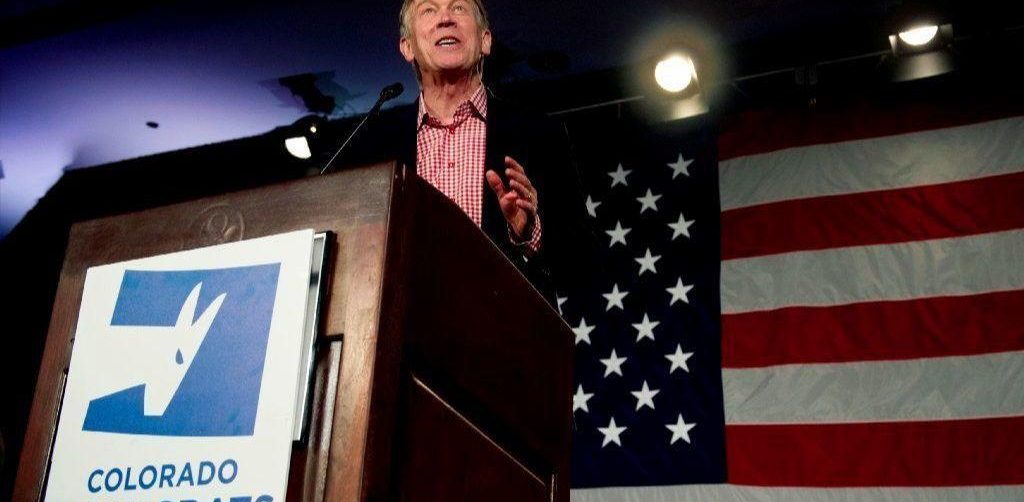When Colorado voted in 2012 to legalize recreational marijuana, Gov. John Hickenlooper was against it.
To do something no other state had, in opposition of federal law, was a daunting task. Fast-forward six years and his perspective has changed.
“The things we most feared — a peak in teenage consumption, a peak in overall consumption, people driving while high — we haven’t seen,” Hickenlooper said Wednesday, speaking at a lunchtime event of the Economic Club of Chicago. “I’m not quite there to say this is a great success, but the old system was awful.”
Hickenlooper, a former brewpub owner whose term ends in January, had some words of wisdom for Illinois as it considers legalizing recreational pot under fellow Democrat J.B. Pritzker. The governor-elect has said he wants to work on legalizing and decriminalizing cannabis “nearly right away” after being sworn in next year.
If Illinois does legalize recreational use, it will need to gather good data to make sure there are no unintended consequences, Hickenlooper said. If there’s a fatal car crash, for example, do a blood test and find out for sure whether weed was a factor, he said.
Employers will need to alter their drug-testing policies, Hickenlooper said. Job candidates often smoke weed in Colorado, but it’s rare that employees show up to work high. If a candidate tests positive in a urine drug test, which can detect if someone smoked in the last month, the potential employer should conduct a blood test to see if he or she smoked in the last day or two.
He also recommended putting strict limits on edibles, going as far as restricting in each dose the allotted concentration of THC, the chemical that gets users high. He warned against overtaxing the drug and driving users back to the black market.
“We still have a black market, and it’s a serious, serious problem,” Hickenlooper said. “(But) we now have $250 million a year in tax money we can put toward (dealing with) that.”
Colorado cities have used marijuana tax revenue to fund scholarships, schools and programs for the homeless, among other efforts.
In Illinois, the landscape surrounding cannabis is changing. The state launched its medical marijuana program three years ago, and for most of that time patients had to have one of about 40 conditions, such as cancer or AIDS, to qualify. Chronic pain was not included. But this summer, Gov. Bruce Rauner signed legislation that allows people prescribed opioids to use medical marijuana, a change that is expected to take full effect early next year. Even before Rauner signed the law, Illinois growers began to expand as more patients gained access to weed. There are currently more than 48,000 qualified patients, nearly double the number from a year ago.
Attitudes toward marijuana and the laws regulating it are changing across the country. The stigma that for so long surrounded the drug is being lifted, as roughly 60 percent of Americans think recreational marijuana should be legalized. Last week, Michigan became the 10th state and the first in the Midwest to legalize recreational use.
Colorado has worked out some of the kinks involved in that process, Hickenlooper said.

